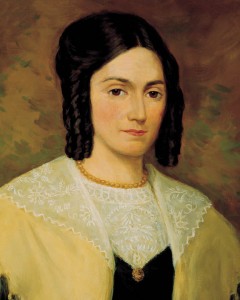
Click for French Translation/Traduction en français
I would start this lesson by putting Joseph Fielding Smith’s quote up on the board: “There is no limit to the good that our sisters can do.”
How does this quote feel to you? What limits do we often put on ourselves? My greatest limitation is fear. I am afraid that I’m not good enough, that I’ll fail, that I’ll do something wrong. Sometimes I even fear that I’ll succeed. Fear of discovering our power as women can limit the good that we can do.
On March 17, 1842, Emma Smith gathered with other women and men to officially organize a society for the women. There was great debate over what the society should be called. Some wanted it to be called the Benevolent Society. Others wanted to call it the Relief Society. In the midst of this debate, Emma said:
[box] “We are going to do something extraordinary! When a boat is stuck in the rapids with a multitude of Mormons on board, we shall consider that a loud call for relief. We expect extraordinary occasions and pressing calls.”1[/box]
I love this story because it shows the passion and the vision that Emma had for us as sisters. She wanted women to break through the limits that hold us back and to do extraordinary things. If we believe that our power to do good is limitless, if we seek to understand and develop the individual gifts our Heavenly Parents have given us, I think we will accomplish the extraordinary things Emma foresaw us accomplishing.
The manual shares this story about President Smith’s mother:
[box] “He had spent a lifetime serving alongside faithful Latter-day Saint women. This service began in the late 1880s, when he was about 10 years old. At that time, Latter-day Saint women were encouraged to gain an education in medicine and health care. His mother, Julina L. Smith, followed this counsel and received training to serve as a midwife. She often awoke him in the middle of the night so he could drive their horse-drawn carriage to a home where a baby was about to be born. Serving with his mother in this way, young Joseph Fielding Smith saw an example of the strength and compassion of the women of the Church, Sister Smith later served as counselor in the Relief Society general presidency.”2 [/box]
- The scriptures tell of faithful women who had responsibilities (and I would add authority) in the Lord’s church.
-Eve, as well as Adam received revelation and commandment to teach their children in the ways of eternal life.
-We read that in the [early] days of Israel, women were active and had duties to perform. (see Exodus 15:20; Judges 4-5)
-In the New Testament we read of a great number of faithful women who sought and gave counsel. Many of these followed the Lord and ministered to him. (see Luke 8:1-3, Luke 10:38-42)
When we look back at these women from ancient times, we see them doing good and brave things with authority from God. What will future generations see when they look back at us? If we put limits on ourselves as women, will we be able to accomplish the great work God has for us to do? What kind of role models will we be for future generations of women?
- In the latter days, Relief Society sisters play vital roles in the restored Church of Jesus Christ.
We are vital! (I would write it on the board for emphasis)
President Smith said:
[box] “Just as necessary is the labor of the Relief Society in the church as it is—shall I say?—with the quorums of the Priesthood. Now some may feel that I am expressing this a little too strongly, but my own judgment is that the work that you, our good sisters, are doing, finds its place and is just as important in the building up of this kingdom, strengthening it, causing it to expand, laying a foundation upon which we all may build, just as much as it is for the brethren who hold the Priesthood of God. We can’t get along without you.”3 [/box]
Why do you think President Smith had such a hard time saying that women are as vital as men? Is this another limitation that we let society place on us, that we are not vital like the men are?
[box] “The Relief Society…has grown to be a power in the Church. Absolutely necessary—we speak of it as an auxillary, which means a help, but the Relief Society is more than that. It is needed.”4[/box]
This can be a bit confusing for us as women because we do refer to the Relief Society as an auxiliary. Elder Oaks recently remarked that the Relief Society is an appendage to the priesthood. This means that we are merely an arm or a leg on the body of Christ. That is a body part that is hard to live without, but one can live without it. President Smith seems to be suggesting here that we are more than that; that we are a vital organ, perhaps the brain and the heart, along with the men. What are we doing to be this vital part? What limits are often placed on us to keep us from achieving that? How are we rising above those limits?
- Relief Society sisters help look after the temporal and spiritual welfare of God’s children.
[box] “From [its] humble start under the most difficult conditions, when the membership of the Church was small, we have seen this society grow…The good that has been accomplished in the care of the poor, care of the sick and afflicted, and those who are in physical, mental, or spiritual need, will never correctly be known.”5[/box]
What extraordinary things are we doing to help people who are in need? What arbitrary limits do we place on our abilities to do good for people in need?
One limitation I think we struggle with is extending unconditional love beyond our own people. President Smith said, [box] “It is the duty of the Relief Society, not only to look after those who are members of the Relief Society, but their labor should also extend beyond those borders. Wherever anyone is in trouble, needs help, in difficulties, sick or afflicted, we call upon the Relief Society… I say there is no limit to the good that our sisters can do.”6[/box]
- The Lord expects women to seek for light and truth that they may be entitled to celestial glory and 5. Through the priesthood, God offers to His daughters every spiritual gift and blessing that can be obtained by His sons.
[box] “Our sisters are entitled just as much to the inspiration for their need of the Holy Spirit as are the men, every bit. They are entitled to the gift of prophecy concerning matters that would be essential for them to know…When they pray they should pray earnestly, especially to have an answer to their prayers. The Lord will hear them, if they are earnest, true, just as well as he will the brethren.”7[/box]
If I am completely honest, I have to say I struggled with these two sections. The topics of truth and light and spiritual gifts are exciting ones for me, but I felt that President Smith made too many mentions about how women have just as much right, responsibility, and ability as men to seek for light and knowledge and to use their spiritual gifts. That seems pretty self-evident to me. Of course we do, because to God, we are completely equal. But maybe that is one of the limitations we place on ourselves that keeps us from seeking for truth and light and using our God-given powers. If President Smith has to tell us that we are equal to men in our ability to speak to God, is that because we actually think that we aren’t? Why does the Prophet feel the need to assure us that we are equal to men?
Instead of having a discussion on how women are equal to men in their ability to seek for truth and light, I would like to discuss what that light looks like when we as women take hold of it. Mary Ellen Smoot said,
[box] “One person can make a difference. Each one of you has unique gifts. Use your gifts to serve others. As we walk in His light, we become women of courage and conviction. We become women of vision, women of destiny, and women of eternal value. Join with us to build spiritual strength, to radiate truth to the world and to celebrate the family. We are a worldwide circle of sisters.”8[/box]
I love this vision of what women can do with their spiritual gifts as we seek for the light and truth that God has to offer us. I love that she talks about our unique gifts because God sees us as individuals, not as a gender. How can celebrating that uniqueness help us to rise above the limits that keep us from doing good?
I think her description of us as women of courage and conviction offers us an image of women breaking through the limitations that hold us back. I love how she talks about our vision and our destiny. We have great places to go and great things to do. In fact, as Emma said, we can do extraordinary things. This thought of breaking through limitations and doing extraordinary things has been powerful for me in my own life lately because I am trying to shed a lot of cultural expectations for me as a woman. These expectations have limited my ability to do good. As I have shed them, I have been better able to serve others, to use my unique spiritual gifts for good, and to seek for truth and light.
Je commencerais cette leçon en écrivant une citation de Joseph Fielding Smith sur le tableau : « Il n’y a aucune limite au bien que nos sœurs peuvent faire. »
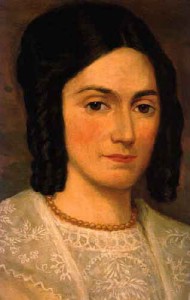
Que pensez-vous de cette citation? Comment nous limitons-nous ? Ma limite la plus grande est la peur. J’ai peur de ne pas être à la hauteur, d’échouer, de mal faire. Parfois j’ai même peur de réussir. Avoir peur de découvrir notre pouvoir en tant que femmes peut limiter le bien que nous pouvons faire.
Le 17 mars 1842, Emma Smith s’est retrouvée avec d’autres femmes et hommes pour organiser officiellement une société pour les femmes. Il y avait un grand désaccord sur le nom de la société. Certaines voulait l’appeler la Société Bénévole. D’autres la Société de Secours. Emma a déclaré :
« Nous allons faire quelque chose d’extraordinaire! Quand un bateau est coincé dans les rapides avec une multitude de mormons à bord, nous allons considérer cela un appel au secours. Nous nous attendons à des occasions extraordinaires et des appels urgents. »1
J’aime beaucoup cette histoire parce qu’elle montre la passion et la vision qu’Emma avait pour nous les sœurs. Elle voulait que les femmes franchissent les barrières qui nous limitent pour faire des choses extraordinaires. Si nous croyons que notre pouvoir de faire le bien est sans limite, si nous cherchons à comprendre et à développer les dons individuels que nos Parents Célestes nous ont donnés, je crois que nous accomplirons les choses extraordinaires qu’Emma nous a prévues accomplir.
Le manuel partage cette histoire sur la mère du Président Smith :
« Il avait passé toute sa vie à œuvrer aux côtés de saintes des derniers jours fidèles. Ce service avait commencé à la fin des années 1880, lorsqu’il avait environ dix ans. À cette époque, on encourageait les saintes des derniers jours à faire des études de médecine et dans le domaine de la santé. Sa mère, Julina L. Smith, suivit ce conseil et reçut une formation pour devenir sage-femme. Elle le réveillait souvent au beau milieu de la nuit pour qu’il la conduise en carriole là où un bébé était sur le point de naître. En travaillant de cette façon avec sa mère, le jeune Joseph Fielding Smith vit un exemple de la force et de la compassion des femmes de l’Église. Sœur Smith fut plus tard conseillère dans la présidence générale de la Société de Secours. » 2
- Les Écritures nous parlent de femmes fidèles qui ont eu des responsabilités (et j’ajouterais de l’autorité) dans l’Église du Seigneur.
-Eve, ainsi qu’Adam, a reçu de la révélation et un commandement d’enseigner à leurs enfant le chemin qui mène à la vie éternelle.
-Nous lisons qu’en Israel, les femmes étaient actives et avaient beaucoup de devoirs. (voir Exode 15:20; Juges 4-5)
-Dans le Nouveau Testament nous apprenons d’un grand nombre de femmes fidèles et cherchaient et donnaient conseil. Beaucoup de ces femmes suivaient le Seigneur et s’occupaient de Lui. (voir Luc 8 :1-3 ; Luc 10 :38-42)
Quand nous pensons à ces femmes des temps anciens, nous les voyons faire des choses courageuses avec de l’autorité de Dieu. Que verront les générations futures quand elles penserons à nous ? Si nous nous limitons, serons-nous capables d’accomplir l’œuvre que Dieu nous a donnée ? Quel genre d’exemple serons-nous pour les générations de femmes à venir?
- Dans les derniers jours, les sœurs de la Société de Secours jouent un rôle essentiel dans l’Église rétablie de Jésus-Christ.
Nous sommes essentielles ! (Je l’écrirais sur le tableau pour le souligner)
Le Président Smith a dit :
« Le travail de la Société de Secours dans l’Église est tout aussi nécessaire que celui des collèges de la prêtrise. Certains peuvent avoir l’impression que je dis cela avec un peu trop d’insistance, mais d’après mon jugement, le travail que vous, nos sœurs fidèles, vous accomplissez, a sa place à côté de celui des frères qui détiennent la prêtrise de Dieu et est tout aussi important que le leur dans l’édification de ce royaume parce qu’il le renforce, le fait grandir et pose des fondements sur lesquels nous pouvons tous construire. Nous ne pouvons pas réussir sans vous. » 3
A votre avis, pourquoi le Président Smith avait-il autant de mal à dire que les femmes sont aussi essentielles que les hommes ? Est-ce une autre limite que nous permettons à la société à mettre sur nous ?
« La Société de Secours… a désormais une influence puissante dans l’Église. Elle est absolument nécessaire. Nous disons d’elle que c’est une auxiliaire, ce qui signifie une aide, mais la Société de Secours est plus que cela. On a besoin d’elle. » 4
Ceci peut confondre certaines sœurs nous parlons bien de la Société de Secours comme une auxiliaire. Elder Oaks a remarqué récemment que la Société de Secours est un appendice à la Prêtrise. Cela veut dire que nous ne sommes qu’un bras ou une jambe sur le corps du Christ. C’est une partie sans laquelle il est difficile de vivre, mais il est possible de vivre sans cette partie. Le Président Smith semble suggérer ici que nous sommes plus que cela : nous sommes une organe vitale, peut-être le cerveau et le cœur, avec les hommes. Que pouvons-nous faire pour être cette partie vitale? Quelles limites sont placées sur nous pour nous empêcher de le devenir? Comment surmontons-nous ces limites ?
- Les sœurs de la Société de Secours contribuent au bien-être temporel et spirituel des enfants de Dieu.
« Depuis [ses] débuts modestes dans des conditions très difficiles, alors que les membres de l’Église étaient peu nombreux, cette Société a grandi sous nos yeux… On ne connaîtra jamais tout à fait le bien qui a été accompli en faveur des pauvres, des malades et des affligés, des personnes qui sont dans le besoin spirituellement, mentalement, ou physiquement. » 5
Quelles choses extraordinaires faisons-nous pour aider ceux qui sont dans le besoin? Quelles limites mettons-nous sur notre capacité de faire du bien aux autres ?
L’une d’entre elle est peut-être la difficulté d’étendre notre amour inconditionnel au-delà de nos membres. Le Président Smith a dit :
« Non seulement la Société de Secours a le devoir de s’occuper des personnes qui en sont membres, mais elle doit aussi étendre ses efforts en dehors de ce cercle. Chaque fois qu’une personne a des problèmes, qu’elle a besoin d’aide, qu’elle est en difficulté, malade ou affligée, nous faisons appel à la Société de Secours… Je crois qu’il n’y a aucune limite au bien que nos sœurs peuvent faire… » 6
- Le Seigneur attend des femmes qu’elles recherchent la lumière et la vérité afin d’avoir droit à la gloire céleste. Et 5. Par l’intermédiaire de la prêtrise, Dieu offre à ses filles tous les dons spirituels et toutes les bénédictions que ses fils peuvent obtenir.
« Nos sœurs ont droit, tout autant que les hommes, à l’inspiration du Saint-Esprit pour leurs besoins. Elles ont droit au don de prophétie concernant les sujets qu’il est essentiel qu’elle connaissent… Lorsqu’elles prient, elles doivent le faire avec ferveur, s’attendant à recevoir une réponse à leurs prières. Le Seigneur les entendra, si elles sont sincères et fidèles, tout comme il entend les frères. » 7
Pour être honnête, j’ai eu du mal avec ces deux sections. La vérité, la lumière et les dons spirituels sont des sujets passionnants, mais je trouve que le Président Smith a dit trop souvent que les femmes ont autant de droits, de responsabilités et de capacités que les hommes de chercher la vérité et la connaissance et d’utiliser leurs dons spirituels. C’est une evidence pour moi. Bien sûr que nous avons les même capacités, car nous sommes tous égaux aux yeux de Dieu. Mais peut-être c’est une limite que nous nous mettons qui nous empêche de chercher la vérité et la lumière pour nous-mêmes. Si le Président Smith doit nous dire que nous sommes égales aux hommes dans notre capacité de parler à Dieu, est-ce parce qu’en réalité, nous croyons que nous ne le soyons pas ? Pourquoi le prophète ressent-il le besoin de nous rassurer que nous sommes égales aux hommes ?
Au lieu de faire une discussion sur l’égalité, je voudrais parler de ce que c’est quand les femmes saisissent de la lumière. Mary Ellen Smoot a dit :
« Une personne peut faire la différence. Chacune d’entre vous a des dons uniques à vous. Utilisez ces dons pour servir les autres. En marchant dans sa lumière, nous devenons des femmes de courage et de conviction. Nous devenons des femmes de vision, de destinée, de valeur éternelle. Rejoignez-nous pour agrandir en force spirituelle pour répandre la vérité dans le monde et pour soutenir la famille. Nous sommes un cercle mondiale de sœurs. » 8
J’aime cette vision de ce que peuvent faire les femmes avec leurs dons spirituels. J’aime qu’elle parle de nos dons unique car Dieu nous voit en tant qu’individus, et non pas en tant que genre collectivement. Comment glorifier notre unicité peut-il nous aider à surmonter les limites qui nous empêchent de faire du bien?
Je pense que sa description de nous en tant que femmes de courage et de conviction nous offre une image d’une femmes qui surmontent toute limite. J’aime comment elle parle de notre vision et de notre destinée. Comme l’a dit Emma Smith, nous pouvons faire des chose extraordinaires.
1. Mormon Enigma: Emma Hale Smith pg. 107-108, by Linda King Newell and Valeen Tippetts Avery
2. JFS Manual pg. 297
3. JFS Manual pg. 301
4. JFS Manual pg. 301
5. JFS Manual pg. 304
6. JFS Manual pg. 303
7. JFS Manuel pg. 305
8. Mary Ellen Smoot, Come, Let Us Walk in the Light of the Lord, Ensign, Nov 1998


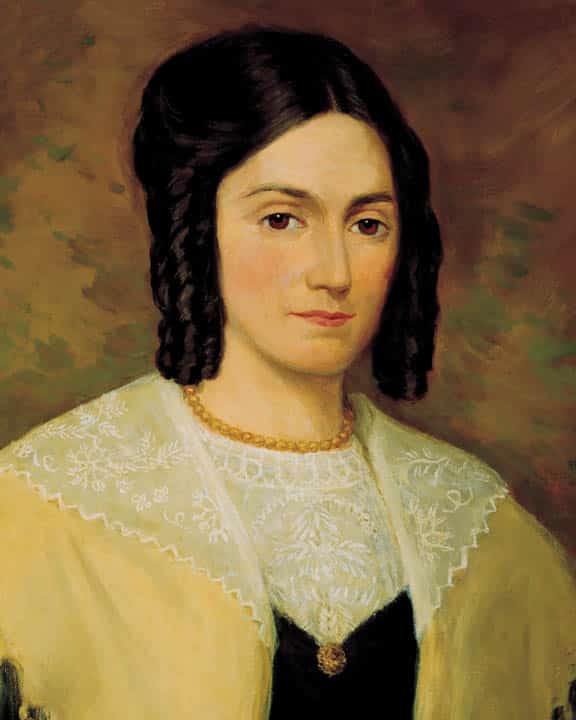
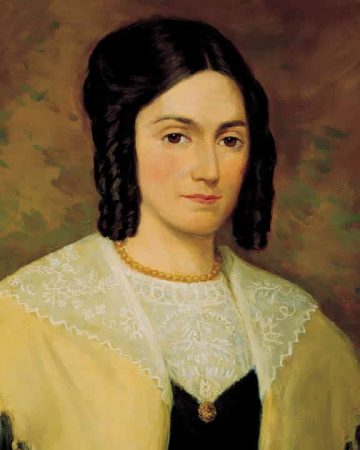
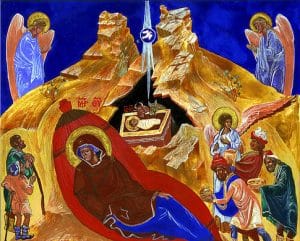

4 Responses
Thank you for this lesson plan. I admit it hurt when he said “some may feel I’m putting this a little too strongly.” Is it so strident to say women contribute as much as men? I feel that this is a difference in tone from more recent conference addresses, that say without equivocation or apology that women and men both contribute and have equal value in the kingdom of God. Whether that is a change in audience attitudes, a change in leadership attitudes, or both I can’t say. It does to me suggest a problem with using these older texts as if they were entirely current. It reinforces a hurtful message (albeit indirectly) that the church is now consciously moving away from. While reading the words of previous prophets has a lot of value, I hope that there will be a curriculum change so they don’t feel obliged to include this type of wording for lack of other things on the topic.
Can you imagine if the gender were reversed in that talk? Maybe I go too far, but I actually believe men have value and make contributions. I know, it sounds crazy, but if you think about it, it sort of makes sense.
I know he meant well, but I think there are other sources that make these points in more straightforward less hurtful ways. I hope the church curriculum moves in that direction in the coming years, so we don’t have to hunt so hard to put in actual women’s voices.
Yes. I agree with you. I feel like the whole lesson was full of that same message. It’s really hard to read in the year 2014. I hope the curriculum changes too. Thanks for the comment.
“Can you imagine if the gender were reversed in that talk? Maybe I go too far, but I actually believe men have value and make contributions. I know, it sounds crazy, but if you think about it, it sort of makes sense.”
Well said.
I’m scheduled to teach this lesson in a few weeks and it’s been difficult to prepare, so I really do appreciate this post.
This manual, in general, I feel is a poorly organized mish-mosh of odd stories from the prophet’s life that are not instructive and the quotes seem poorly edited together. In some lessons you’ll find that each paragraph in succession is a quote taken from a completely different talk, so there is overlap and sometimes odd tangents to the actual principles being focused on for the lesson. When I find myself being overly critical of a lesson I’m assigned to teach, I will often have DH (who is much more generous toward editors and poorly placed stories, and less reactive than I) have a go to verify, that yes, this is indeed a poorly assembled manual. It’s too bad since Joseph Fielding Smith was an incredible scriptorian with so much material to choose from, and that really gets lost in this manual. I hope they’ll re-edit it before it comes around again.
Anyway, back to this lesson. There are quotes that can be interpreted by some to be either hurtful or ludicrous or both. I mean, c’mon: women can have answers to prayers just like men, women can receive revelation just like men, women should keep the commandments and participate in ordinances just like men, etc etc etc. Makes me want to pull my hair out. In frustration, I mentioned to DH that in so many ways we live in a post-feminist society (a discussion for another time) and some church leaders in recent addresses have seemed to express a new world view for women, beyond the limiting 1950’s-boardroom-corporate-culture-boys-club model that the church has been operating in, and then you get a lesson like this?! DH did point out that the church operates in countries and cultures where women do not enjoy the range of roles and choices that I do living in the US. And there are plenty people in wards and stakes in the Western world for whom this lesson is actually instructive. So, I’ve tried to take a different tack, thinking more along the lines of how do I or how does the society (or ward) I live in limit women, promote stereotypes or oppression, etc. But my thoughts have been jumbled and incoherent because of my underlying irritation with the lesson content. So, thank you, thank you, for this well written post and the inclusion of quotes from Emma Smith and Mary Ellen Smoot. I wish you were on the board of editors for the manuals.